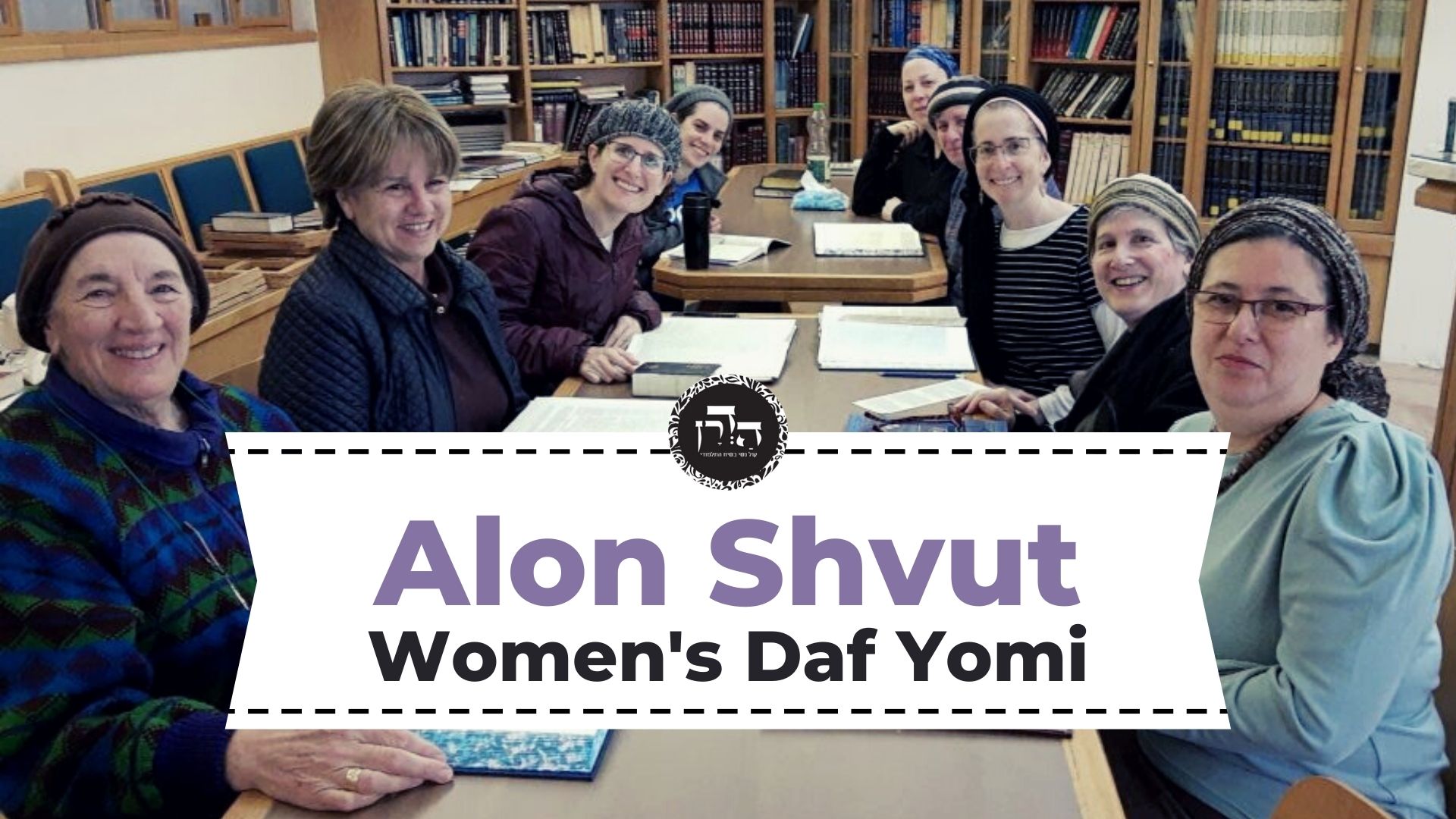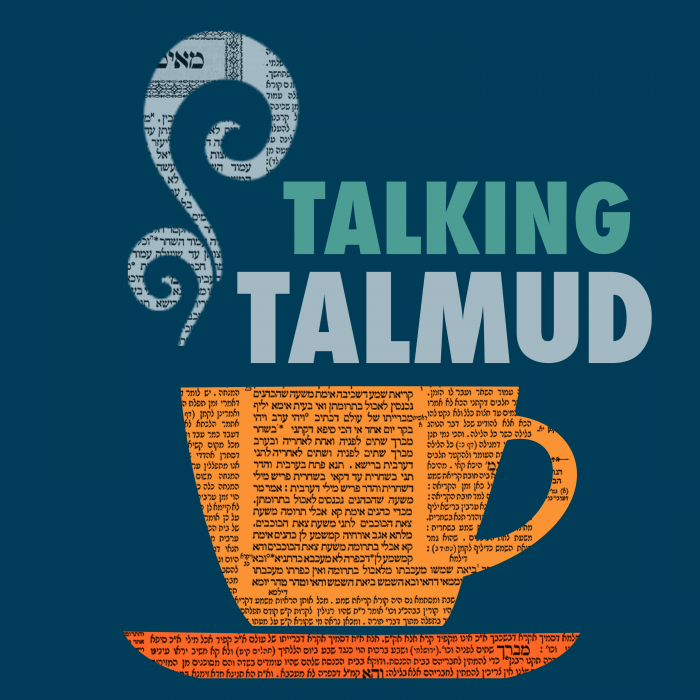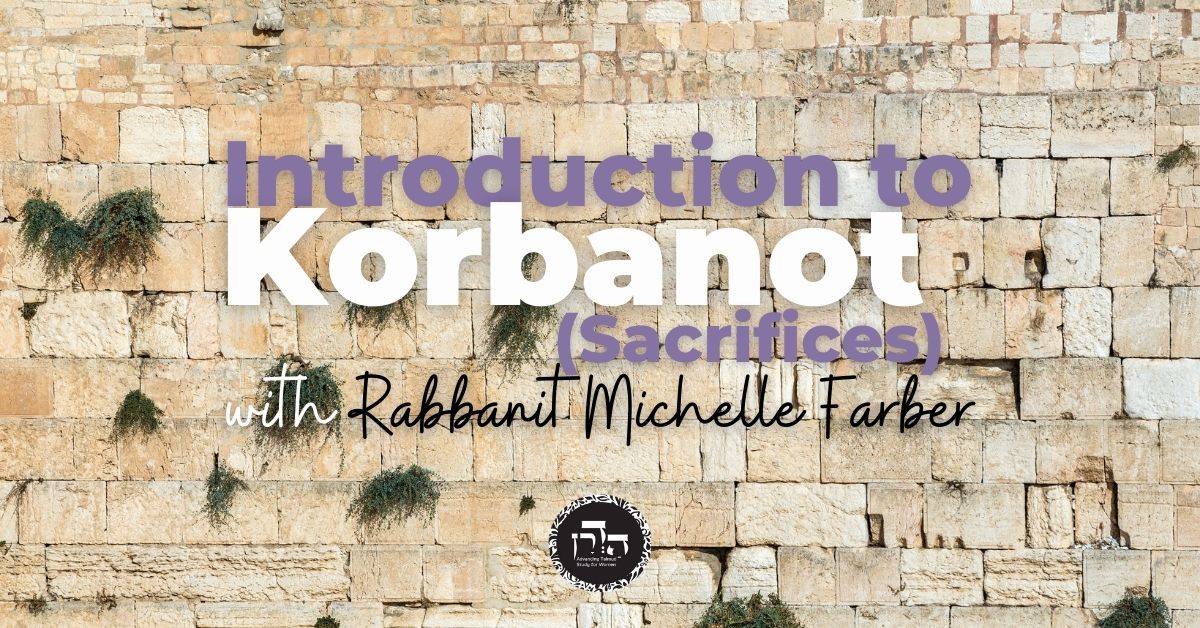Pesachim 57
נֵימָא תְּלָתָא תַּנָּאֵי הֲווֹ? לָא, תְּרֵי תַּנָּאֵי הֲווֹ, וְתַנָּא קַמָּא דְּרַבִּי שִׁמְעוֹן הַיְינוּ רַבִּי יוֹסֵי, וְתַנָּא קַמָּא דְּרַבִּי יוֹסֵי הַיְינוּ רַבִּי שִׁמְעוֹן. וּמַאי ״אַף״ — אַקַּמַּיְיתָא.
Let us say that there are three tanna’im who dispute this point: The two unattributed opinions, each of which is referring to two vegetables, and the opinion common to Rabbi Yosei and Rabbi Shimon that includes all three vegetables. The Gemara rejects this: No, there are only two tanna’im who dispute the point, and the first tanna whose opinion appears before the opinion of Rabbi Shimon is Rabbi Yosei. And the first tanna whose opinion appears before the opinion of Rabbi Yosei is Rabbi Shimon. And what is the meaning of the word even in both their statements? They agree with regard to the first vegetable, turnips; however, they disagree with regard to the second, and replace it with another vegetable.
תָּנוּ רַבָּנַן: בֶּן בּוּהְיָין נָתַן פֵּיאָה לַיָּרָק, וּבָא אָבִיו וּמְצָאָן לַעֲנִיִּים שֶׁהָיוּ טְעוּנִין יָרָק וְעוֹמְדִין עַל פֶּתַח הַגִּינָּה. אָמַר לָהֶם: בָּנַי, הַשְׁלִיכוּ מֵעֲלֵיכֶם וַאֲנִי נוֹתֵן לָכֶם כִּפְלַיִים בַּמְעוּשָּׂר. לֹא מִפְּנֵי שֶׁעֵינִי צָרָה, אֶלָּא מִפְּנֵי שֶׁאָמְרוּ חֲכָמִים: אֵין נוֹתְנִין פֵּיאָה לַיָּרָק.
The Gemara cites an episode from the Tosefta. The Sages taught: The son of a man named Bohayan designated for the poor the produce in the corner in a garden of vegetables, and his father Bohayan found the poor laden with vegetables and standing at the opening of the garden on their way out. He said to them: My sons, cast the vegetables that you have gathered from upon yourselves and I will give you twice the amount in tithed produce, and you will be no worse off. Not because I begrudge you what you have taken. Rather, it is because the Sages say: One does not designate for the poor the produce in the corner in a garden of vegetables. Therefore, the vegetables that you took require tithing.
לְמָה לֵיהּ לְמֵימְרָא לְהוּ ״לֹא מִפְּנֵי שֶׁעֵינִי צָרָה״? כִּי הֵיכִי דְּלָא לֵימְרוּ: דַּחוֹיֵי קָא מְדַחֵי לַן.
The Gemara asks: Why was it necessary for him to say to them: Not because I begrudge you what you have taken? It would have been sufficient to offer them tithed produce. The Gemara answers that he said it so they would not say: He is putting us off, taking what we collected now, but later he will not fulfill his commitment.
תָּנוּ רַבָּנַן: בָּרִאשׁוֹנָה הָיוּ מַנִּיחִין עוֹרוֹת קָדָשִׁים בְּלִשְׁכַּת בֵּית הַפַּרְוָה, לָעֶרֶב הָיוּ מְחַלְּקִין אוֹתָן לְאַנְשֵׁי בֵּית אָב. וְהָיוּ בַּעֲלֵי זְרוֹעוֹת נוֹטְלִין אוֹתָן בִּזְרוֹעַ. הִתְקִינוּ שֶׁיִּהְיוּ מְחַלְּקִין אוֹתָן מֵעֶרֶב שַׁבָּת לְעֶרֶב שַׁבָּת — דְּאָתְיָין כּוּלְּהוּ מִשְׁמָרוֹת, וְשָׁקְלָן בַּהֲדָדֵי.
Apropos the people of Jericho, the Gemara relates that powerful people would steal wood from them. The Sages taught: Initially, the priests would place the hides that were flayed from animals consecrated as offerings of the most sacred order, which were given to the priests, in the Parva chamber. In the evening, they would distribute them to the members of the family of priests serving in the Temple that day. And the powerful priests among them would take them by force before they could be distributed. The Rabbis decreed that they would distribute them each Shabbat eve, because then all the families of both priestly watches came and took their part together. All the families from both the watch that was beginning its service and the one ending its service were together when they divided the hides. The powerful priests were unable to take the hides by force.
וַעֲדַיִין הָיוּ גְּדוֹלֵי כְהוּנָּה נוֹטְלִין אוֹתָן בִּזְרוֹעַ. עָמְדוּ בְּעָלִים וְהִקְדִּישׁוּם לַשָּׁמַיִם.
Yet still the prominent priests by virtue of their lineage would take them by force. Due to their prominence, the members of the rest of the watch dared not challenge them. When they realized that there was no equitable distribution, the owners of the sacrifices (Me’iri) arose and consecrated the hides to Heaven so the priests could not take them.
אָמְרוּ: לֹא הָיוּ יָמִים מוּעָטִים עַד שֶׁחִיפּוּ אֶת הַהֵיכָל כּוּלּוֹ בְּטַבְלָאוֹת שֶׁל זָהָב, שֶׁהֵן אַמָּה עַל אַמָּה כְּעוֹבִי דִּינַר זָהָב, וּלְרֶגֶל הָיוּ מְקַפְּלִין אוֹתָן וּמַנִּיחִין אוֹתָן עַל גַּב מַעֲלָה בְּהַר הַבַּיִת, כְּדֵי שֶׁיְּהוּ עוֹלֵי רְגָלִים רוֹאִין שֶׁמְּלַאכְתָּם נָאָה וְאֵין בָּהּ דֶּלֶם.
The Sages said: Not a few days passed before they had plated the entire sanctuary with golden tablets with the proceeds from the redemption and sale of the hides. These plates were one cubit by one cubit and as thick as a golden dinar. And when the people assembled for the Festival pilgrimage they would remove the tablets and place them on a stair of the Temple Mount so that the pilgrims would see that the craftsmanship of the tablets was beautiful and without flaw [dalam]. Afterward they replaced the tablets in the Sanctuary.
תָּנָא, אַבָּא שָׁאוּל אוֹמֵר: קוֹרוֹת שֶׁל שִׁקְמָה הָיוּ בִּירִיחוֹ, וְהָיוּ בַּעֲלֵי זְרוֹעוֹת נוֹטְלִין אוֹתָן בִּזְרוֹעַ, עָמְדוּ בְּעָלִים וְהִקְדִּישׁוּם לַשָּׁמַיִם.
It was similarly taught that Abba Shaul says: There were sycamore tree trunks in Jericho, and powerful people would take them from their owners by force. The owners stood and consecrated these trunks to Heaven. It was with regard to these trunks and the branches that grew from them that the residents of Jericho acted against the will of the Sages.
עֲלֵיהֶם וְעַל כַּיּוֹצֵא בָּהֶם אָמַר אַבָּא שָׁאוּל בֶּן בָּטְנִית מִשּׁוּם אַבָּא יוֹסֵף בֶּן חָנִין: אוֹי לִי מִבֵּית בַּיְיתּוֹס — אוֹי לִי מֵאָלָתָן, אוֹי לִי מִבֵּית חָנִין — אוֹי לִי מִלְּחִישָׁתָן, אוֹי לִי מִבֵּית קַתְרוֹס — אוֹי לִי מִקּוּלְמוֹסָן, אוֹי לִי מִבֵּית יִשְׁמָעֵאל בֶּן פִּיאָכִי — אוֹי לִי מֵאֶגְרוֹפָן. שֶׁהֵם כֹּהֲנִים גְּדוֹלִים, וּבְנֵיהֶן גִּיזְבָּרִין, וְחַתְנֵיהֶם אֲמַרְכָּלִין, וְעַבְדֵיהֶן חוֹבְטִין אֶת הָעָם בְּמַקְלוֹת.
With regard to the prominent priests and those like them, Abba Shaul ben Batnit said in the name of Abba Yosef ben Ḥanin: Woe is me due to the High Priests of the house of Baitos, woe is me due to their clubs. Woe is me due to the High Priests of the house of Ḥanin; woe is me due to their whispers and the rumors they spread. Woe is me due to the High Priests of the house of Katros; woe is me due to their pens that they use to write lies. Woe is me due to the servants of the High Priests of the house of Yishmael ben Piakhi; woe is me due to their fists. The power of these households stemmed from the fact that the fathers were High Priests, and their sons were the Temple treasurers, and their sons-in-law were Temple overseers [amarkalin]. And their servants strike the people with clubs, and otherwise act inappropriately.
תָּנוּ רַבָּנַן: אַרְבַּע צְווֹחוֹת צָוְחָה עֲזָרָה. רִאשׁוֹנָה: צְאוּ מִכָּאן בְּנֵי עֵלִי שֶׁטִּימְּאוּ הֵיכַל ה׳. וְעוֹד צָוְוחָה: צֵא מִיכָּן יִשָּׂשׂכָר אִישׁ כְּפַר בַּרְקַאי שֶׁמְּכַבֵּד אֶת עַצְמוֹ וּמְחַלֵּל קׇדְשֵׁי שָׁמַיִם. דַּהֲוָה כָּרֵיךְ יְדֵיהּ בְּשִׁירָאֵי וְעָבֵיד עֲבוֹדָה.
Apropos the critique of several prominent priests, the Gemara relates that the Sages taught: The people in the Temple courtyard all cried four cries, as they were in agreement over various issues (Pardes Rimonim). The first cry was: Leave here, sons of Eli, who defiled God’s Sanctuary (see I Samuel 2:22). Subsequently the priesthood was transferred to the house of Zadok. And an additional cry: Leave here, Yissakhar of Kfar Barkai, who honors himself and desecrates the items consecrated to Heaven. Due to his delicate nature and his disrespect for the Temple service, he would wrap his hands in silk [shirai] and perform the service. This would invalidate the service because the silk was an interposition between his hands and the Temple vessels. Furthermore, his conduct demeaned the Temple service, as he demonstrated that he was unwilling to dirty his hands for it.
וְעוֹד צָוְוחָה הָעֲזָרָה: שְׂאוּ שְׁעָרִים רָאשֵׁיכֶם וְיִכָּנֵס יִשְׁמָעֵאל בֶּן פִּיאָכִי תַּלְמִידוֹ שֶׁל פִּנְחָס, וִישַׁמֵּשׁ בִּכְהוּנָּה גְּדוֹלָה. וְעוֹד צָוְוחָה הָעֲזָרָה: שְׂאוּ שְׁעָרִים רָאשֵׁיכֶם וְיִכָּנֵס יוֹחָנָן בֶּן נִרְבַּאי תַּלְמִידוֹ שֶׁל פִּנְקַאי וִימַלֵּא כְּרֵיסוֹ מִקׇּדְשֵׁי שָׁמַיִם.
And the people in the Temple courtyard cried additionally: Lift your heads, O gates, and let the righteous Yishmael ben Piakhi, the student of Pinehas ben Elazar the priest, enter and serve as High Priest, although the members of this family were violent. And the people in the Temple courtyard cried additionally: Lift your heads, O gates, and let Yoḥanan ben Narbbai, the student of Pinkai, enter and fill his belly with meat of offerings consecrated to Heaven, as he is worthy to eat offerings.
אָמְרוּ עָלָיו עַל יוֹחָנָן בֶּן נִרְבַּאי שֶׁהָיָה אוֹכֵל שְׁלֹשׁ מֵאוֹת עֲגָלִים, וְשׁוֹתֶה שְׁלֹשׁ מֵאוֹת גַּרְבֵי יַיִן, וְאוֹכֵל אַרְבָּעִים סְאָה גּוֹזָלוֹת בְּקִינּוּחַ סְעוּדָה. אָמְרוּ: כׇּל יָמָיו שֶׁל יוֹחָנָן בֶּן נִרְבַּאי לֹא נִמְצָא נוֹתָר בְּמִקְדָּשׁ. מַאי סְלִקָא בֵּיהּ בְּיִשָּׂשׂכָר אִישׁ כְּפַר בַּרְקַאי? אָמְרִי: מַלְכָּא וּמַלְכְּתָא הֲווֹ יָתְבִי. מַלְכָּא אֲמַר: גַּדְיָא יָאֵי, וּמַלְכְּתָא אָמְרָה: אִימְּרָא יָאֵי. אֲמַרוּ: מַאן מוֹכַח? כֹּהֵן גָּדוֹל, דְּקָא מַסֵּיק קׇרְבָּנוֹת כׇּל יוֹמָא. אֲתָא אִיהוּ,
They said about Yoḥanan ben Narbbai that he and his household would eat three hundred calves, and drink three hundred jugs of wine, and eat forty se’a of doves for dessert. They said: Throughout all the days of Yoḥanan ben Narbbai there was no leftover sacrificial meat in the Temple, as he would make certain that someone ate it. The Gemara asks: What ultimately happened to Yissakhar of Kfar Barkai? They said: The king and the queen were sitting and talking. The king said that goat meat is better food, and the queen said lamb meat is better food. They said: Who can prove which one of us is correct? The High Priest can, as he offers sacrifices all day and tastes their meat. The High Priest had the right to take a portion from any sacrifice offered in the Temple, and therefore was well acquainted with the tastes of different meat. Yissakhar of Kfar Barkai came, and when they asked him this question,
אַחְוִי בִּידֵיהּ: אִי גַּדְיָא יָאֵי, יִסַּק לִתְמִידָא. אֲמַר מַלְכָּא: הוֹאִיל וְלָא הֲוֵי לֵיהּ אֵימְתָא דְמַלְכוּתָא, נִיפְסְקוּ לְיַמִּינֵיהּ. יְהַב שׁוֹחַד וּפַסְקֵיהּ לִשְׂמָאלֵיהּ. שְׁמַע מַלְכָּא וּפַסְקֵיהּ לְיַמִּינֵיהּ. אָמַר רַב יוֹסֵף: בְּרִיךְ רַחֲמָנָא דְּאַשְׁקְלֵיהּ לְיִשָּׂשׂכָר אִישׁ כְּפַר בַּרְקַאי לְמִיטְרַפְסֵיהּ מִינֵּיהּ בְּהַאי עָלְמָא.
he signaled contemptuously with his hand and said: If goat is better, let it be sacrificed as the daily offering. The daily offering is a lamb, proving that its meat is preferable to that of a goat. The king said: Since he not only disagrees with me but has no reverence for the monarchy, as evident from his contempt, sever his right hand. He gave a bribe and the official severed his left hand. The king heard that Yissakhar had deceived him and had the official sever his right hand as well. Rav Yosef said: Blessed is God Who took retribution [mitarpesei] from Yissakhar of Kfar Barkai in this world and did not wait to punish him more severely in the next world. His punishment fit the crime; because he would not dirty his hands with sacrificial blood and was overzealous in keeping his hands clean, both his hands were severed.
אָמַר רַב אָשֵׁי: יִשָּׂשׂכָר אִישׁ כְּפַר בַּרְקַאי לָא תְּנָא מַתְנִיתִין. דִּתְנַן, רַבִּי שִׁמְעוֹן אוֹמֵר: כְּבָשִׂים קוֹדְמִים לָעִזִּים בְּכׇל מָקוֹם, יָכוֹל מִפְּנֵי שֶׁמּוּבְחָרִין בְּמִינָן — תַּלְמוּד לוֹמַר: ״אִם כֶּבֶשׂ יָבִיא קׇרְבָּנוֹ״, מְלַמֵּד שֶׁשְּׁנֵיהֶן שְׁקוּלִין כְּאֶחָד. רָבִינָא אָמַר: אֲפִילּוּ מִקְרָא נָמֵי לָא קְרָא, דִּכְתִיב: ״אִם כֶּבֶשׂ״, ״אִם עֵז״, אִי בָּעֵי כֶּבֶשׂ — לַיְיתֵיהּ, אִי בָּעֵי עֵז — לַיְיתֵיהּ.
Rav Ashi said: Yissakhar of Kfar Barkai did not study the Mishna and was an ignoramus who did not know that this halakha is stated explicitly in the mishna. As we learned in a mishna: Rabbi Shimon says: Lambs take precedence over goats in every place they are mentioned in the Bible. I might have thought that this is because it is a more select species. Therefore, the verse states: “If he brings a lamb as his offering” (Leviticus 4:32). The Torah passage where bringing a lamb as a sin-offering is discussed appears after the passage describing the sin-offering of a goat. The inconsistent order teaches that both these animals are equal. Ravina said: Yissakhar did not even read the Bible properly, as it is written: “If a lamb” (Leviticus 4:32), “if a goat” (Leviticus 3:12), teaching: If one wishes let him bring a lamb; if one wishes let him bring a goat. There is no clear preference.
הַדְרָן עֲלָךְ מָקוֹם שֶׁנָּהֲגוּ וּסְלִיקָא לַהּ פֶּסַח רִאשׁוֹן






















